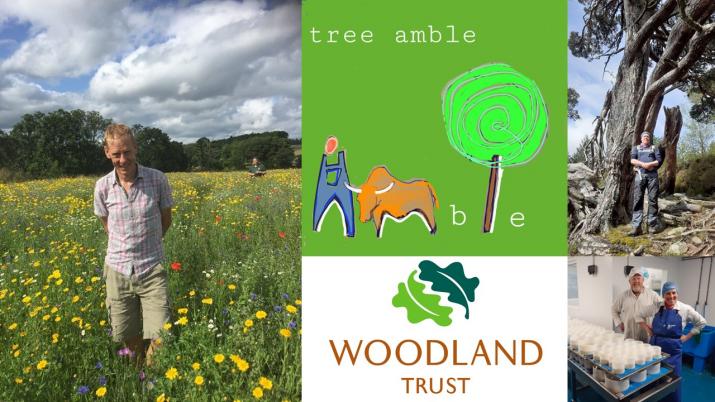
The Woodland Trust turned 50 last year and is the UK’s leading woodland conservation charity. Begun in 1972 with the acquisition of its first ancient woodland it now owns and directly manages over 1100 sites covering over 50,000 across Great Britain and Northern Ireland.
When the Woodland Trust started its work the theory of supporting biodiversity through maintaining reserves was still very much the currency. However, as our understanding of landscapes has improved, how species move, how fragmentation affects species and climate change impacts play out, then the work of the Woodland Trust has adapted and changed. As well as its estate team the Trust now has a team of outreach advisors tasked with making “landscape scale” impacts.
For example our Cumbria wide project, managed by Pete Leeson, is one such outreach project. His remit is to engage with landowners and land mangers with the aim of creating connections between habitats and adding value though using landscape ecological thinking. Pete’s approach has been to go right down to the individual level and try to work with as many people in the landscape as possible creating links with individual small land holdings right up to the large estates and commons. Success has come through relationship building and honest conversation combined with delivery and the most significant projects area now bearing fruit. For example Tebay Common, visible from the railway line and M6 corridor, has been in an agri-environment scheme for over 10 years with our support. The scheme built in stock exclusion zones and scrub creation on 12% of the common. Monitoring over that period has shown dramatic increases in breeding bird presence – from 4 species in 2014 to 13 by 2022. Work with Lancaster University has also shown benefits to water management over the sale time scale.
Pete has been celebrating his 30th year at the Woodland Trust using his sabbatical time to do a podcast called Tree Amble. The podcast focuses on Regenerative Agriculture and Sustainable Land Use through conversations with many of the people Pete has met through his work in Cumbria and elsewhere. Stories include farms moving to organic or pasture only systems and agroforestry plus conversations about soils, water and wildlife.
By thinking about all elements of sustainable land use and working with those farmers and land managers in a positive way we can truly bring in Landscape Ecology to land management decisions. To follow the serious of Tree Amble Podcasts please follow this link and on Twitter at Treeamblepod1.